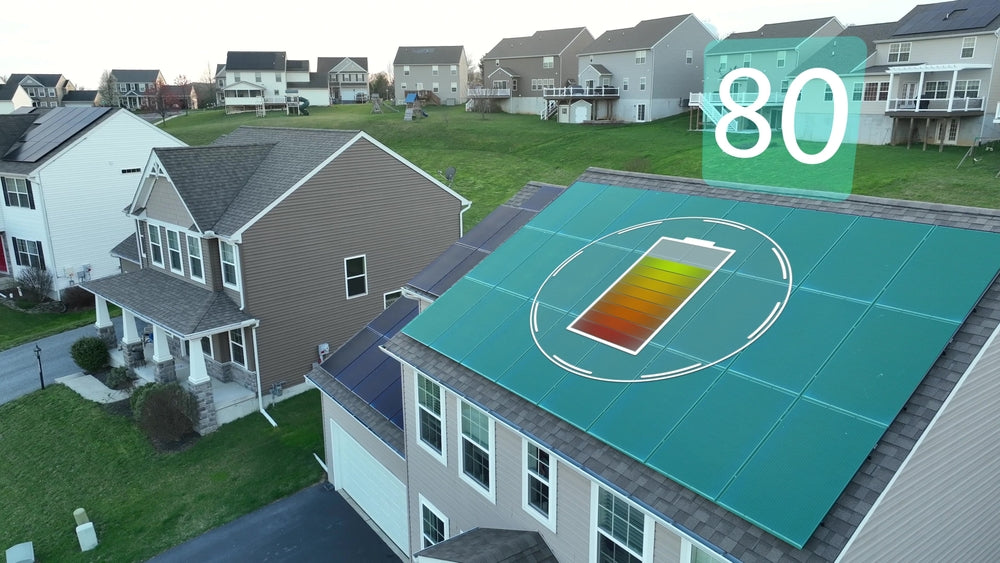
In the quest for energy independence, the combination of solar panels and battery storage systems is a game-changer. By harnessing the power of the sun and storing it for later use, homes and businesses can minimize their reliance on the grid, lower energy bills, and ensure a stable power supply, even during outages. This guide explores how to maximize energy independence with solar and battery storage systems, ensuring you get the most out of your investment.
Understanding Solar Panels and Battery Storage
Solar panels convert sunlight into electricity, which can be used to power your home. Any excess energy generated during the day is typically sent to the grid. However, with the addition of a battery storage system, you can store this surplus energy for use at night or during cloudy days, reducing your dependence on external energy sources. Battery storage ensures that you’re using as much of your self-generated solar power as possible, making your home more self-sufficient.
The Benefits of Combining Solar Panels with Battery Storage
When solar panels and battery storage are combined, you unlock several benefits:
- Energy Independence: With a battery system, you rely less on the grid for your electricity needs. Even during power outages, a well-sized battery system can keep your essential appliances running.
- Cost Savings: Solar panels reduce your energy bills, but adding battery storage helps you avoid using grid power when electricity rates are highest. By storing energy during the day and using it during peak hours, you can significantly cut costs.
- Sustainability: By using more of your solar-generated energy, you reduce your carbon footprint. This combination helps homes and businesses move closer to being completely green.
Key Considerations When Choosing Battery Storage for Solar Panels
- Battery Capacity: The size of the battery will determine how much energy you can store. Larger batteries can store more energy, providing more backup power, but they are also more expensive. It’s essential to assess your energy consumption to select a battery that fits your needs.
- Battery Efficiency: Some battery systems lose energy during the charging and discharging process. Look for high-efficiency batteries that minimize this loss and give you more usable power.
- Lifespan: Solar battery systems have a limited number of charge cycles. Consider the lifespan of the battery and whether it provides good value for long-term use.
- Compatibility: Not all battery systems are compatible with every type of solar panel. Ensure that the battery you choose works seamlessly with your solar setup.
Types of Solar Batteries
Several types of batteries are commonly used in solar storage systems:
- Lithium-Ion Batteries: These are the most popular batteries due to their high efficiency, long lifespan, and lightweight design. They offer great energy density and are ideal for residential use.
- Lead-Acid Batteries: While cheaper upfront, lead-acid batteries have a shorter lifespan and lower efficiency compared to lithium-ion. They are still used in some applications but may not be the best long-term solution.
- Flow Batteries: A newer option, flow batteries have a long lifespan and can store large amounts of energy. However, they are more expensive and better suited for large-scale or commercial applications.
Maximizing the Lifespan of Your Solar Battery
To get the most out of your solar battery, regular maintenance is essential. Here are a few tips to ensure your battery lasts as long as possible:
- Monitor Usage: Keep track of your energy consumption to avoid draining the battery too quickly. Overuse can reduce its lifespan.
- Temperature Control: Batteries perform best in moderate temperatures. Extreme heat or cold can degrade battery performance, so it’s important to install your system in a controlled environment.
- Regular Inspections: Have your solar and battery system inspected regularly to catch any issues early. Preventative maintenance can extend the life of your system.
Off-Grid Living: Solar Panels and Battery Storage
For those living off-grid, solar panels and battery storage systems are a necessity. Without a connection to the grid, you must rely entirely on solar power and your battery system to meet your energy needs. Off-grid systems require larger battery storage capacities to ensure enough power is available, especially during cloudy days or periods of low sunlight. For complete energy independence, pairing your solar panels with an efficient battery storage system is crucial.
Solar Panels and Battery Storage for Businesses
Businesses can also benefit from combining solar panels with battery storage. In addition to cutting energy costs, businesses can use stored energy to avoid peak electricity rates, reduce downtime during outages, and meet sustainability goals. Many commercial properties install larger solar and battery systems to power their operations throughout the day and night. This is particularly beneficial for businesses with high energy demands.
The Role of Energy Monitoring Systems
An energy monitoring system can further optimize the efficiency of your solar and battery storage setup. These systems track your energy production and usage in real-time, helping you make informed decisions about when to use stored energy or adjust your consumption patterns. By monitoring your system, you can ensure that your energy use is as efficient as possible, further increasing your energy independence.
Incentives and Financing Options
Many governments offer incentives for installing solar panels and battery storage systems. These can come in the form of tax credits, rebates, or feed-in tariffs, which pay you for excess energy sent back to the grid. Financing options such as solar loans or power purchase agreements (PPAs) can also make the upfront cost of solar and battery systems more manageable. Research the incentives and options available in your area to make the switch to solar more affordable.
Solar Panels and Extreme Weather
One concern when investing in solar panels is how they will perform during harsh weather conditions. Modern solar panels are designed to withstand extreme temperatures, heavy rain, hail, snow, and even high winds. By selecting the right panels, you can ensure reliable performance year-round, no matter the weather. Maintenance, such as clearing snow or dust, can further improve efficiency.
Future of Solar Technology and Energy Independence
Advancements in solar technology, such as more efficient solar panels and better energy storage solutions, are driving a future where total energy independence is achievable. Smart solar systems with AI-based monitoring are also becoming more common, providing consumers with the ability to optimize energy usage.
Conclusion
The combination of solar panels and battery storage is the ultimate solution for achieving energy independence. Whether you're a homeowner looking to reduce reliance on the grid or a business seeking to lower energy costs, this pairing offers flexibility, savings, and sustainability. By investing in the right battery system, performing regular maintenance, and utilizing energy monitoring tools, you can maximize the benefits of your solar energy system. With the future moving toward clean energy, solar and battery storage systems are a smart investment for anyone looking to take control of their energy needs.








